“I can only put so much in a song.” This is the line that starts and ends “The Phone Call That Changed My Life,” opening track on the first and only album from 16 AND PREGNANT and TEEN MOM star Farrah Abraham, MY TEENAGE DREAM ENDED. Released during the golden age of infamous viral pop songs like Rebecca Black’s “Friday” and Jenna Rose’s “My Jeans,” Abraham’s debut was marketed as the derided companion piece to her memoir of the same title. But unlike her fellow regulars on “Worst Music of the 2010s” lists, Abraham’s musical debut has not only aged surprisingly well, but is now remembered as a cross-genre crystal ball that gave a less-than-appreciative public a glimpse into the direction that music would take in the following decade. While the “Recommended Artists” section of her Spotify profile shows her in good company with groundbreaking experimental artists like Dean Blunt, Xiu Xiu, and Arca, Abraham’s post-factum status as a hyperpop pioneer and definitive outsider artist is to this day overshadowed by her more “low culture” identifiers—her legal scandals, her controversial parenting practices, her post-MTV work as an adult film star.
She’s cursed with a reputation that precedes her. It’s perhaps because of this that much of her newfound positive reception has been a double-edged sword that listeners use to simultaneously knight her and stab her. As fortunate as it is that her music has found its audience with the irony-addled and the chronically online, the audience’s disposition has limited their ability to connect with it beyond the realm of novelty. “It’s so bad it’s good,” listeners might say, putting up a barrier of irony behind which they can praise Abraham while still maintaining a sense of superiority. Her contemporary reappraisal has been much deserved, but the ironic detachment that it’s been saturated in seems to cheapen the retroactive accolades. This backhanded acclaim presents Abraham’s music as something that should be enjoyed only as a guilty pleasure. But MY TEENAGE DREAM ENDED isn’t “so bad it’s good”—it’s just good.
—
Two summers before Farrah Abraham released the eulogy for her teenage dream, Katy Perry spun hers out of sugar. Perry, already in her mid-twenties at the time of the TEENAGE DREAM’s release, confirmed that the album’s title track wasn’t about a teenage relationship per se, but rather about a relationship between two adults whose passion recalled the intensity of a teen romance. Despite this, the song was clearly engineered with a teenage audience in mind, illuminated by a halo of nostalgia. From its hazy, sun-drenched music video to its lyrical embodiment of the teenage invincibility complex, it leaned all the way into a consumable, romanticized ideal of young love.
Most media made for or about teenagers is created by adults whose distance from their own teen years makes it easier to portray their target demographic in a dreamy, saccharine light. In instances where teenhood isn’t presented as devoid of consequences altogether (á la Katy Perry), the more negative aspects are either condescendingly regurgitated back to teens in the form of Very Special Episode-style fearmongering, or sensationalized in a way that gives them a sense of glamorous, aspirational danger. Both of these criticisms were frequently levied against the MTV shows that made Farrah Abraham famous—some viewers claimed that 16 AND PREGNANT and TEEN MOM exploited and punched down at teenage mothers, while others accused MTV of glorifying teen pregnancy and downplaying the hardships of young motherhood.
Part of what makes MY TEENAGE DREAM ENDED feel so unique is that it rejects this rigid categorization of what a coming-of-age story is supposed to look (and sound) like. At 21 years old, Abraham was somewhat removed from the adolescent experiences she was singing about, but still existed in the public consciousness as a “teen mom.” Her music captured a strange paradox: it was the portrait of a young woman whose reputation was defined by recognizable tropes of teendom, but also that of a teenage girl who’d been prematurely forced into adulthood. Abraham didn’t sugarcoat her stories of adolescent hardship, nor did she use them to feed into an alluring “troubled bad girl” persona. When she stepped into the role of the autobiographical pop star, she didn’t try to lift herself above her listeners by making her dysfunction seem cool or sexy. Her persona was one that attempted to channel an unattainable glamor, but ended up humanizing her. She was already a celebrity, but Pop Star Farrah was somehow able to unlock a level of realness that, ironically, seemed out of Reality TV Star Farrah’s reach. Without MTV producers editing her life for mass consumption, she earnestly embraced a flashy aesthetic and let it serve as a vehicle for radical vulnerability.
—
There are moments on MY TEENAGE DREAM ENDED where Abraham’s incorporation of gaudy, candy-colored imagery of 2000s excess feels like an accidental pastiche, or an alien’s attempt to recreate an earthbound pop sound. Penultimate track “The Sunshine State” features a rambled list of the kind of references you might hear on the Ke$ha and Lady Gaga songs that dominated the Top 40 radio waves at the time; when Abraham sings (or perhaps more accurately, rattles off) a stream of consciousness verse—“Palms, white waves / Seashells and flowers / Guys partyin’ / Drinks flowin’ / Endless money / Keep it goin’”—it feels like a an approximation of that era’s tropes that could come off as satirical, were it not so naïve. As the song progresses, these references grow less and less coherent, and the result lands somewhere between an absentminded radio singalong and a magical incantation. These esoteric phrases jostle you from the parade of more surface-level lyrics, prompting you to wonder what the hell she means by “Party attitude / Make a memoir about houses / Has the magic power,” but by the time you start to question her, the harsh synths have already faded into an outro sample of lazy ukulele strumming that sounds like the background music on an episode of SPONGEBOB SQUAREPANTS.
Other moments on the album show Abraham making more overt digs at pop music clichés. On “The Phone Call That Changed My Life,” her bratty delivery of the line “I still pictured us together / Yeah the whole / ‘You and I forever’” blurs the divide between sarcasm and sincerity. It’s hard to tell whether it’s a kiss-off in the style of Avril Lavigne’s “My Happy Ending,” the anguished plea of a hopeless romantic, or one disguising the other.
None of this is meant to suggest that Abraham’s aim is to degrade or parody. If anything, MY TEENAGE DREAM ENDED is imbued with a deep reverence for pop music, complete with now-dated lyrical shoutouts to Adele and Soulja Boy. As we’ve begun to realize that her album might not have been as terrible as it was originally made out to be, there’s still a failure to recognize Abraham’s efforts as sincere, and in turn, a failure to sincerely engage with her art.
It’s no coincidence that much of the music that MY TEENAGE DREAM ENDED arguably paved the way for has been received similarly, albeit to a lesser extent. Dylan Brady and Laura Les of 100 gecs have repeatedly refuted the misconception that they’re parody artists making a pastiche of pop music from a safe, satirical distance. Much like Abraham, 100 gecs’ maximalist production and absurd lyricism doesn’t detract from their artistic integrity or make what they’re doing any less honest. A 2018 profile for Jezebel similarly highlighted the ways in which SOPHIE’s music challenges preconceived notions of authenticity:
“Your so-called “authentic” self can be one you create yourself, on your own terms, SOPHIE’s music suggests. A love song sung in a digitally altered chipmunk voice, created using a laptop, can be just as meaningful and earnest as a folk song.”
Abraham’s music makes a similar statement. The version of Farrah Abraham singing on MY TEENAGE DREAM ENDED is a caricature of herself, but what pop performance doesn’t involve some degree of self-caricature? Is what Abraham does thematically and emotionally on MY TEENAGE DREAM ENDED really all that different from the impassioned songwriting of more traditional pop stars like Carly Rae Jepsen and Taylor Swift? Are we more willing to take the teenage turmoil of Lorde or Billie Eilish or Olivia Rodrigo seriously just because their training is formal and their public personas are more palatable?
Tracks like “After Prom” see Abraham retreating into an exaggerated, idealized fantasy of teenage life, one grandiose enough to capture the turbulent highs and lows of adolescent emotions, but also one that captures their awkwardness. The phrasing is clumsy—“Life is about party, live, love / Don’t think about the choices you choose”—and it almost sounds like she’s actively not trying to follow the melody of the instrumental. And in a way, she wasn’t trying, simply because there was no melody to follow. Abraham wrote the lyrics to all her songs independently, before approaching producer Frederick M. Cuevas and asking if he could produce a record for her. To give him an idea of the type of sound she was going for, she played him Benny Benassi’s electro-house song “Cinema.” Instead of singing to the backing tracks that Cuevas had recorded, Abraham recorded her vocals using a click track, having never previously heard the music that would accompany her lyrics.
This unconventional writing and recording process adds to the disjointed feel of the album as a whole, mirroring its emotional subject matter. It’s off-putting, almost haunting in its naïvite. Songs like “Liar Liar” lean fully into this, with its references to “pants on fire” and its eerie, watery refrain of “We’re fighting / We’re fighting not” that sounds like the disembodied mumblings of a little ghost girl who’s trapped inside your walls. It’s the stuff that the current onslaught of TikTok singers making insipid, overproduced, nursery rhyme-interpolating pop punk songs wish they could pull off.
—
Abraham’s music ultimately reveals itself as disorienting in the way that trauma itself often is. There’s a dissociative quality to MY TEENAGE DREAM ENDED, not unlike that of Grimes’ album VISIONS, which came out just months prior. On tracks like “Visiting Statue,” “Circumambient,” and breakout single “Oblivion,” Grimes pairs oblique lyrical allusions to various traumas with childlike vocal delivery and ethereal production, lulling the listener into a trancelike state until they tune in just close enough to the lyrics to realize what she’s actually singing about. The dissonance of Abraham’s similarly immature tone feels like a regression of sorts, an attempt to salvage what’s left of her innocence in the wake of an unplanned pregnancy, the sudden loss of Derek (her then-unborn baby’s father), and the abuse she’s suffered at the hands of her mother. The opening lines of “With Out This Ring…”—“I hoped one day / I knew it could happen / Just not now”—take on a deeper significance when you learn that Abraham was essentially forced into giving birth by her mother, who refused to let her get an abortion.
Noticeably out of time with the delicate piano melody of “Searching For Closure,” Abraham directly addresses Derek’s death for the first time on the album. “This is new to me / Death is in your place,” she sings, stumbling through the song’s foggy production, clouded by grief. The narratives are non-linear, thought processes zig-zag over one another and go unfinished, ideas are jumbled into a discordant haze. In some ways, MY TEENAGE DREAM ENDED is an early musical embodiment of the traumacore aesthetic, a controversial multimedia art style popularized on Tumblr in the 2010s, defined by its juxtaposition of cutesy, childlike imagery with references to childhood trauma and abuse (often of a sexual and/or religious nature). The past and the present are fused together, and best encapsulated in “With Out This Ring…”’s simplistic, yet profound thesis statement on growing up: “I don’t wanna make mistakes/I still need to make more mistakes”
Abraham’s storytelling often feels as much like a child’s idea of teenage and adult interpersonal drama as it does a young woman’s retelling of her own coming of age. Listening to the opening lines of “On My Own,” where she sings “I’m swinging out little one’s hand / I’m the push behind the swing / I know everything we wanted / everything we strived for,” I couldn’t help wonder whether the “little one” she’s singing about isn’t just her daughter Sophia, but also a younger version of herself that she’s attempting to make peace with. Condemned upon its release as one of the worst songs ever made, “On My Own” is arguably the best-aged track off MY TEENAGE DREAM ENDED. Cuevas’ bouncy, glittering synth production gives it the danceability of a Charli XCX single, and the lyrics are some of Abraham’s most multifaceted and emotionally potent: “My hopes have dropped / My sadness flares / My anger is my power / My heart just stares.”
“On My Own” is just one of many songs that make the album sound ahead of its time even ten years later. If I’d never heard the cacophonous closer “Finally Getting Up From Rock Bottom” and you told me it was a Black Dresses B-side, I’d believe you without question. In many ways this track feels like a spiritual precursor to the Canadian duo’s noisy, dystopian pop. “Unplanned Parenthood” features a reference to poppers and a boisterous house beat that sounds like something Azealia Banks would rap over. The ambiguity of Abraham’s question, “Is this a happy ending?” makes the song even more compelling, prompting us to wonder what “it” is that might be her way out: Motherhood? Love? Fame? Whatever it is, she speeds past the question, leaving it up to the listener’s interpretation, and closes the song with “Let’s set the tone,” inadvertently announcing herself as an oracle offering a glimpse into pop music’s anarchic future.


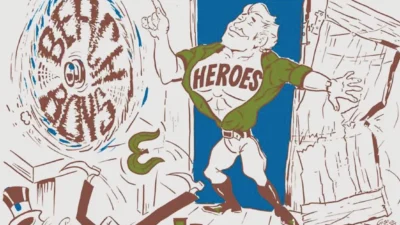

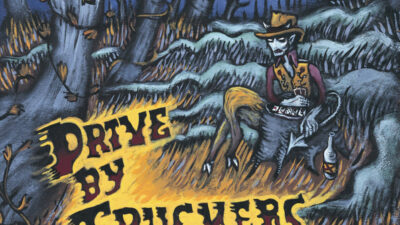

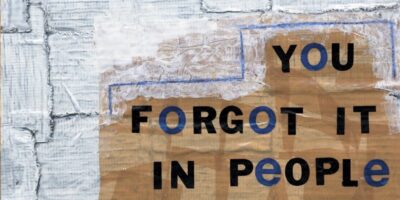

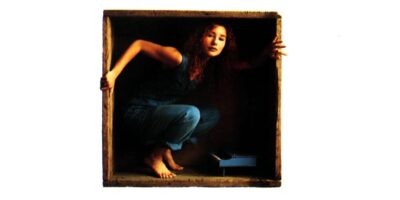
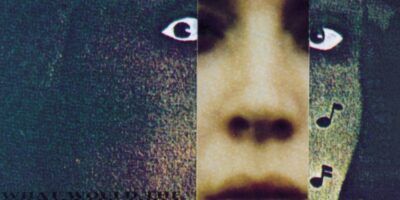



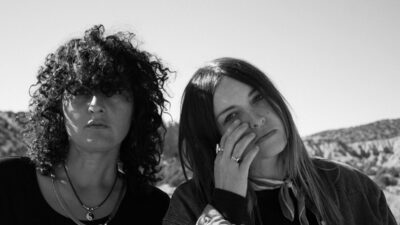


Comments